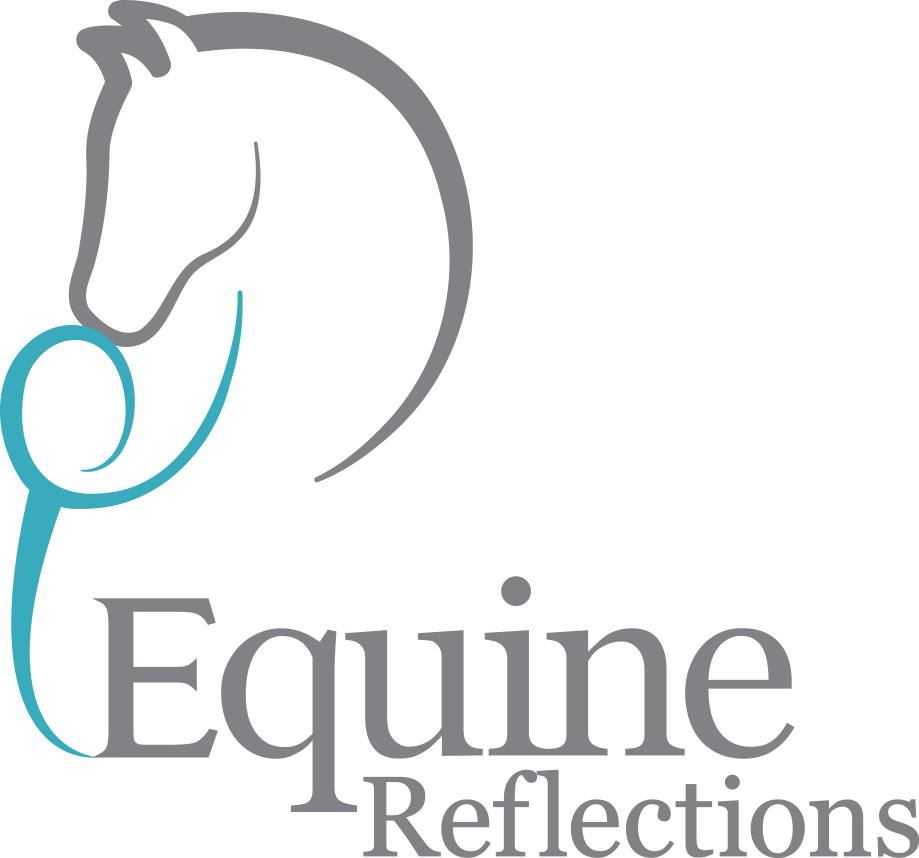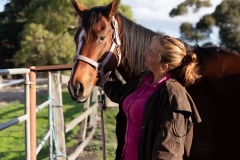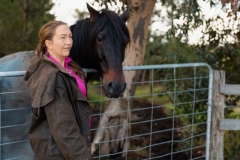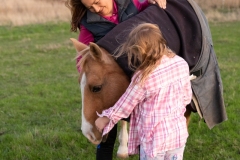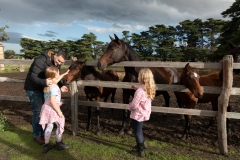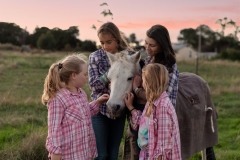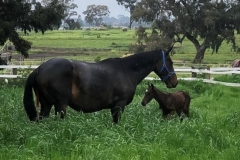General
Where are you located?
Our sessions are held at Highfields Equestrian Centre, 520 Mickleham Rd, Attwood, Melbourne, Australia.

How much do equine therapy sessions cost?
60-minute sessions are $150 + gst
90-minute sessions are $210 + gst
120-minute sessions are $260 + gst
Sibling sessions $210 + gst (These will run between 60-90 mins)
Family sessions $260 + gst (These will run between 60-90 mins)
NDIS reports are charged a minimum 1 hour at $150 + gst
Please allow 60-90 minutes for the first session which involves us gathering a comprehensive intake so that we can best meet your needs
We do not offer mental health plans funded through Medicare.
Costs of equine therapy can be covered by NDIS if:
- This form of treatment is likely to have a positive impact on your health and wellbeing and;
- It is directly related to your disability. It also needs to meet the reasonable and necessary test that NDIS applies to all purchases made using plan funds.
It could be a good idea to add equine therapy and counselling to your NDIS plan if it connects to your NDIS goals. For example, if your goals are to improve your physical wellbeing, you could outline how equine therapy could help you achieve better physical health through improving your muscle tone and strength. You could also ask an occupational therapist or a physiotherapist to write a recommendation letter outlining their view on benefits of equine therapy to you. Equine Reflections can support you in understanding how this form of therapy can align to your goals.
How long is one session?
50 mins face to face, plus 10 minutes of note writing.
What happens if I’m/my child is scared of the horse?
Your practitioner is highly experienced in working with people with all sorts of concerns. If anxiety around horses is a concern, they will work with you or your child in a way that provides safety and stability without expectations of being in with the horse. Some of the most profound sessions can happen outside of a paddock.
What is Equine Reflections’ diversity statement?
Equine Reflections would like to acknowledge the Aboriginal and Torres Strait Islander peoples of the Wurundjeri Woi-wurrung as Australia’s First People and Traditional Custodians. We value their cultures, identities, and continuing connection to country, waters, kin and community. We pay our respects to Elders past, present and emerging. We are committed to making a positive contribution to the wellbeing of Aboriginal and Torres Strait Islander people, by providing services that are welcoming, safe, culturally appropriate, and inclusive.
Equine Reflections is committed to embracing diversity and eliminating all forms of discrimination in the provision of health services. We welcome all people irrespective of ethnicity, lifestyle choice, faith, sexual orientation and gender identity.
![]()
What other services to you provide?
Equine Reflections is continually expanding and is preparing:
- a day retreat program
- a group program
- a team building program
We are always open to suggestions, so please lets us know if you have something in mind and we would be more than happy to accommodate.
What are your qualifications?
Anita’s background as a support worker helping a range of people with psychosocial needs moved her seamlessly into the world of equine therapy. She is now a qualified Counsellor and Equine Assisted Mental Health Practitioner certified by Equine Assisted Therapy Australia. This is the only governing body that can certify Equine Therapists in Australia.
Anita also has the following:
- Diploma of Counselling, Registered with the Australian Counselling Association
- Experienced Equine Assisted Learning Practitioner
- WWC check
- First-Aid qualified
- Police check
What is the place like where therapy sessions are conducted?
We can’t wait for you to experience our tranquil and beautiful location in the northwest of Melbourne. It feels like a world away from the busyness of life. As we are surrounded by nature, you may see kangaroos, chickens and our goose called Gin.



There is something about the gentle wisdom in a horse’s eye that can put even the most troubled soul at peace.
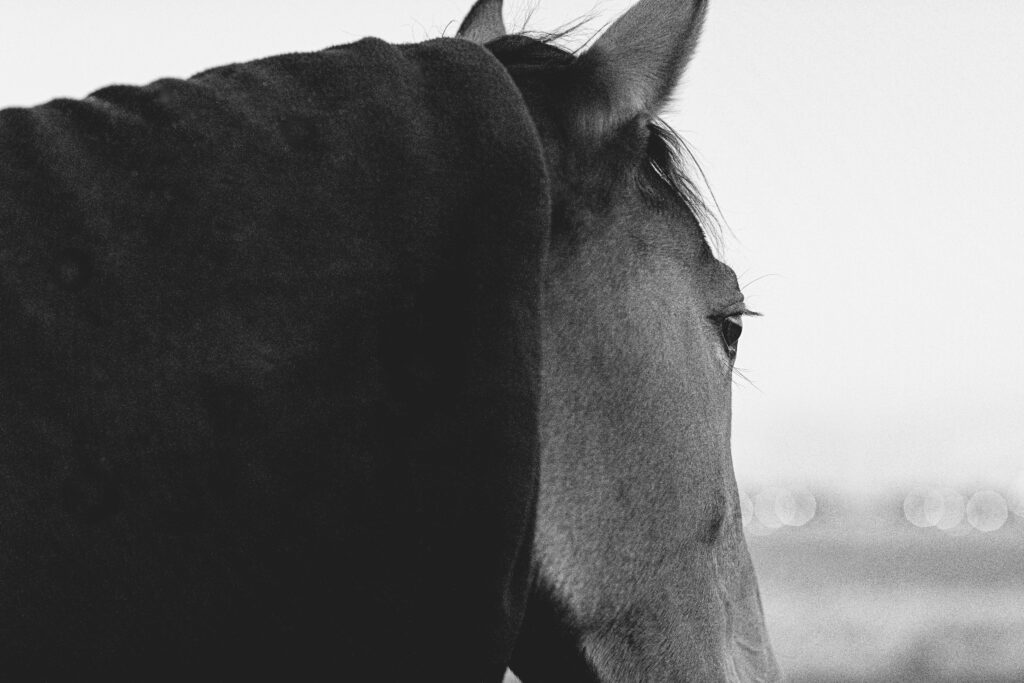
Equine Therapy
What is equine therapy?
Equine therapy involves various activities with horses that help improve physical and mental health of the therapy participants. Sessions are specifically designed for individuals to meet their goals and activities are experiential in nature. Some examples are leading all the way to grooming and feeding, all while closely supervised by a trained professional.
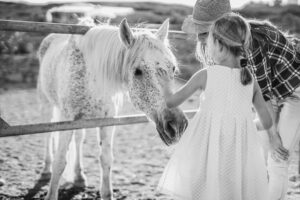
Who can use equine therapy?
Equine therapy can help with a number of physical and mental health conditions, but it is most commonly used for supporting people with:
- ADD/ADHD
- Autism spectrum disorder
- Developmental delay
- Down syndrome
- Post traumatic stress disorder
- Mood disorders
- Trauma
- Anxiety and depression
- Drug and Alcohol recovery
- Anyone that is looking to develop self-awareness, tools for emotional regulation and a goal of overall improved well-being
Equine therapy has been proven to be particularly effective for people with autism. Equine therapy is set in an environment that feels relaxed and non-judgemental, so can help people feel comfortable using and developing their social skills while improving overall wellbeing.
How does equine therapy work?
Equine therapy is very effective due to the particular nature of horses – they can mirror human emotions and react similarly to us when placed in social situations. For example, if a participant starts their session calm, the horse is likely to respond in the same manner, allowing them to connect and bond through the activity. On the other hand, if someone starts their activity nervous and agitated, the horse may step away. Each and every session is experiential in nature that leads to insights on individuals state of mind.
A horse will reflect exactly what you need to see about yourself.
Are you brave enough to ask?
Are you strong enough to listen?
Are you humble enough to learn?
What are the benefits of equine therapy?
Equine therapy has a multitude of benefits, helping participants improve their cognitive, physical, emotional and social wellbeing. These can include:
- Cognitive: improved attention span, better concentration, greater tactile awareness
- Physical: improved muscle tone, better posture, greater balance, better coordination
- Emotional and social: improved judgement and awareness, greater self-esteem, boost in confidence and improved regulation
They can read your mind because your thoughts are making subtle changes in your body.
Will I be riding a horse?
No, Equine Reflections believe the most powerful interactions from a therapeutic context can happen whilst on the ground when connecting with horses and their therapist. If you are looking for a mounted option, we are happy to refer you to other practices.
